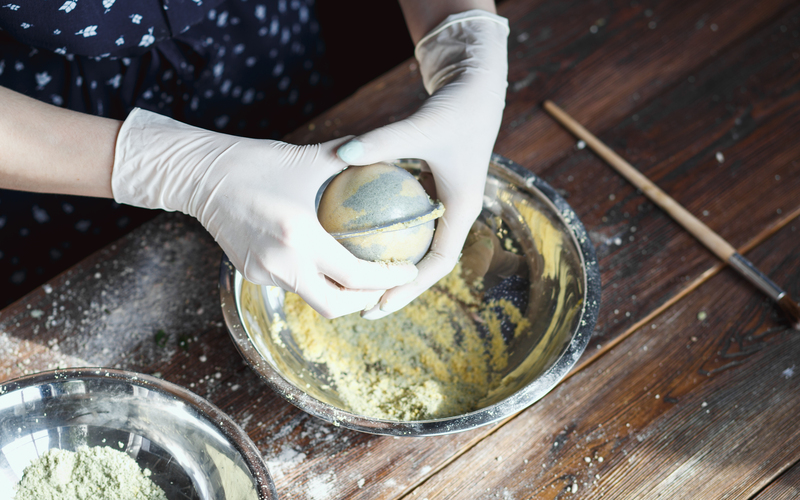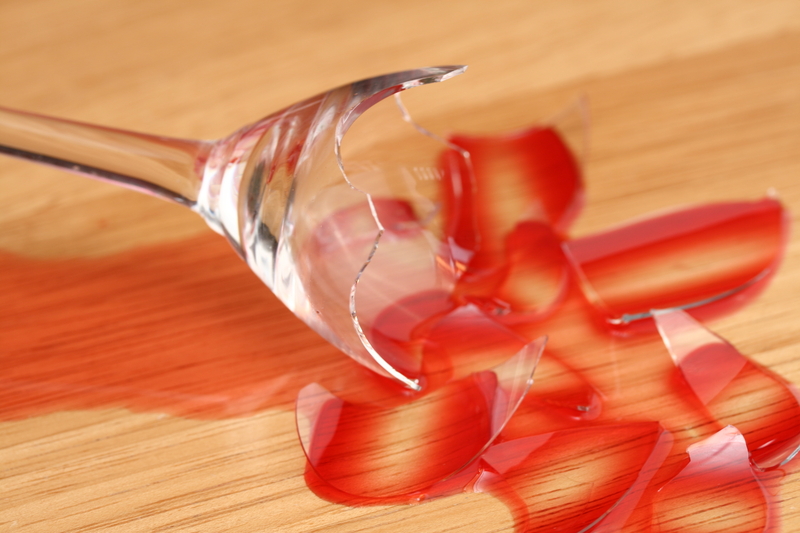The Professional's Guide to Oven Cleaning
Posted on 28/09/2024
The oven is one of the most frequently used appliances in any kitchen. Whether you're an avid home cook or a professional chef, keeping your oven clean is essential not only for reasons of hygiene but also to ensure it functions efficiently. This comprehensive guide will walk you through the best practices and techniques for maintaining a spotless, high-performing oven.
Why is Oven Cleaning Important?
Regular oven cleaning is crucial for several reasons:
- Health and Safety: Food residues and grease in the oven can become a breeding ground for bacteria, presenting health risks.
- Performance: A dirty oven can affect cooking times and temperatures, leading to inconsistent results.
- Longevity: Proper maintenance can extend the life of your oven, saving you money on repairs and replacements.
- Energy Efficiency: Clean ovens distribute heat more efficiently, reducing energy consumption and costs.

Types of Ovens and Specific Cleaning Needs
Different types of ovens have varied cleaning requirements. Let's explore the three main types:
Self-Cleaning Ovens
Self-cleaning ovens have a pyrolytic coating that incinerates food residues at high temperatures. Here's how to maintain them:
- Remove all racks and accessories.
- Wipe down loose debris with a damp cloth.
- Activate the self-cleaning cycle, which usually lasts between 2-4 hours.
- After the cycle is complete and the oven cools, wipe away the ash with a damp cloth.
Steam Clean Ovens
Steam clean ovens use water to create steam that loosens dirt and grease. Follow these steps:
- Remove all oven accessories.
- Pour water into the bottom of the oven per manufacturer recommendations.
- Start the steam clean cycle, typically lasting around 30 minutes.
- Wipe away any loosened residue with a cloth once the cycle ends and the oven cools.
Conventional Ovens
Conventional ovens require manual cleaning. Here's a step-by-step approach:
- Remove all racks and accessories.
- Prepare a cleaning solution, either a commercial oven cleaner or a homemade mixture of baking soda and water.
- Apply the cleaning solution to the oven's interior, avoiding heating elements.
- Let it sit for the recommended time, usually 20-30 minutes.
- Scrub the interior with a non-abrasive scrubber.
- Wipe away the residue with a damp cloth.
Best Cleaning Products for Ovens
Choosing the right cleaning products is crucial for effective oven maintenance. Here are some recommendations:
Commercial Oven Cleaners
Oven Pride: Known for its powerful formula, Oven Pride can tackle even the most stubborn grease and grime.
Easy-Off: Available in fume-free versions, Easy-Off is a convenient and effective choice for regular and deep cleaning.
Natural Cleaning Solutions
If you prefer eco-friendly options, natural cleaning solutions can be equally effective:
- Baking Soda and Water: A paste made from baking soda and water can dissolve grease and lift stains.
- Vinegar: Vinegar can cut through grime and sanitize surfaces.
- Lemon Juice: Combined with baking soda, lemon juice can remove tough stains and leave a pleasant scent.
Techniques for Cleaning Oven Racks
Oven racks can accumulate tenacious grease and baked-on food. Here's how to clean them effectively:
Soaking Method
- Remove the racks from the oven.
- Place them in a sink or bathtub filled with hot water and dish soap.
- Let them soak for several hours or overnight.
- Scrub with a non-abrasive scrubber or brush.
- Rinse thoroughly and dry before reinstalling.
Baking Soda and Vinegar
- Sprinkle baking soda generously over the racks.
- Spray with vinegar to create a fizzy reaction.
- Let it sit for 10-15 minutes.
- Scrub off the grime and rinse well with water.
Professional Tips for Oven Cleaning
To ensure you achieve a thorough and effective clean, here are some expert tips:
Pre-Cleaning Preparation
Before starting, ensure the oven is completely cooled down to avoid burns. Lay down old newspapers or towels to catch any drips or debris.
Cleaning the Oven Door
The oven door, especially the glass, can become stained with grease and food splatters. Use a paste of baking soda and water, apply it to the glass, let sit for 15-20 minutes, and wipe clean with a damp cloth.
Consistent Maintenance
Regularly wiping down the oven after use can prevent the buildup of grime and make deep cleaning more manageable. Aim to clean your oven every few months, depending on usage.
Avoiding Common Mistakes
Avoid using abrasive materials that can scratch or damage the oven's interior. Also, never spray or apply cleaner directly onto heating elements or electrical components.

When to Call a Professional
While regular maintenance can be done at home, there are times you might need to call in a professional:
- Persistent Odors: If there are lingering smells that don't dissipate, a professional can assess and clean hard-to-reach areas.
- Deep Stains: Stubborn, baked-on stains might require professional-grade equipment and cleaners.
- Regular Maintenance: For commercial kitchens, regular professional cleaning can ensure compliance with health codes and optimal performance.
Conclusion
In conclusion, maintaining a clean oven is vital for health, performance, and longevity. Whether you choose commercial products or natural solutions, following the correct procedures and techniques will ensure your oven remains in top condition. By integrating these practices into your routine, you can enjoy a well-functioning and hygienic cooking space.
Remember, a clean oven not only enhances the quality of your meals but also contributes to a more enjoyable cooking experience. So, roll up your sleeves and get your oven sparkling clean today!






